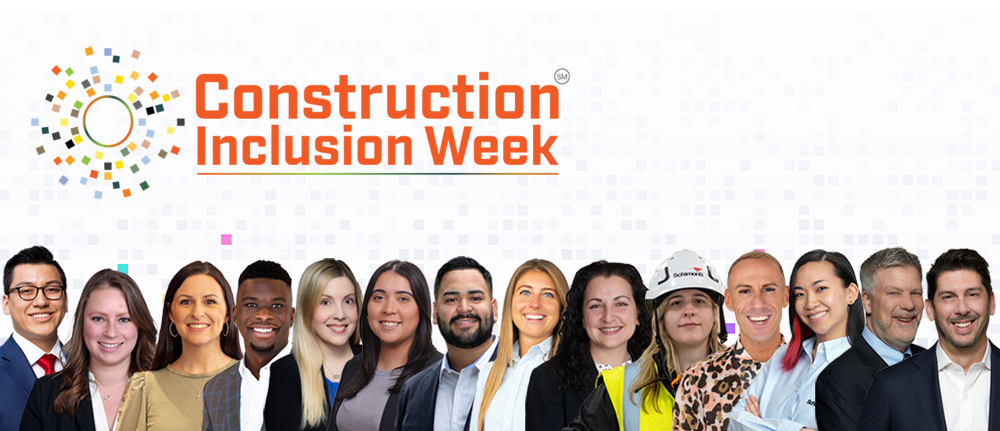The third annual Construction Inclusion Week is celebrated from October 16th to 20th this year. During the week, the primary goal is to explore avenues for advancing diversity, equity, and inclusion within the construction industry. It also provides an opportunity to engage in meaningful conversations that will contribute to the ongoing progress of our organization’s DEI journey.
Throughout the week, our team members will share their valuable insights, aligning with the daily themes outlined by the organizers.
Day 1: Commitment & Accountability
To fully realize a culture of inclusion and belonging requires both leadership commitment and accountability to ourselves and others. Neither leadership nor accountability are top-down but rather shared responsibilities that each of us regardless of role, title or position can actively demonstrate. There are lots of examples and definitions for leadership. But at its most basic level leadership is the ability to influence others towards achieving a goal.
Accountability is owning and accepting responsibility for one’s actions. When these are put in the context of diversity, equity and inclusion, it means we all have a part to play. All of us being leaders, modeling the behavior we want to see in others and influencing others towards the goal of a more inclusive society; and holding ourselves and others accountable to actions that help inspire and achieve that vision.
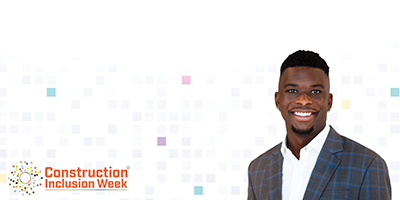
“In construction, inclusive leadership is essential for progress. It requires empathy, attentive listening, and a sincere dedication to elevating all voices. At Schimenti, these attributes are embodied by our collective leadership as we build not just structures, but a future where everyone has a seat at the table.”
Deshawn Grandison
Assistant Project Manager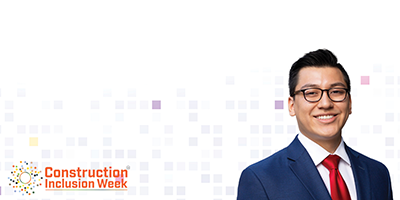
“Empowering our teams promotes innovation by embracing diverse backgrounds and perspectives, revealing various approaches to problem-solving. The strength of an inclusive, collaborative environment is genuinely remarkable.”
Jhon-Carlo Marroquin
Project Manager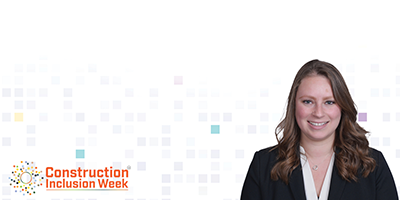
“At Schimenti, a core value is fostering collaboration among a diverse group from varied backgrounds and cultures. Our continued success stems from leadership’s dedication to promoting idea-sharing and providing a platform for everyone to collaborate and grow. This commitment to diversity and inclusion is evident in our projects, and it remains pivotal as we aim to lead our industry and demonstrate how diversity drives success.”
Dana Riemer
Project Manager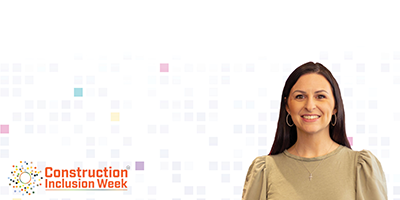
“At Schimenti, we believe in a shared responsibility to foster inclusion and belonging. Every one of us, regardless of title, has the power to influence and inspire. As leaders in our own right, we champion diversity and equity, holding ourselves and each other accountable. Together, we can shape an inclusive future.”
Tina Girardo
Senior Operations Manager, Project Management
Day 2: Belonging
Education and understanding the implications of unconscious bias is critical to cultivating a culture of inclusion and belonging. Belonging is that sense you get that you are a valued member of a community. When people feel that they are part of a community, they feel a sense of purpose.
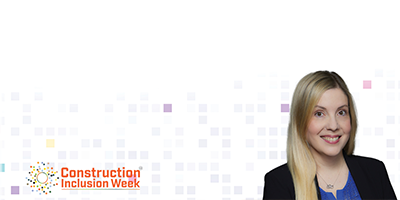
“At Schimenti, we are committed to continuous improvement in everything we do, including our ongoing progress in becoming a more inclusive workplace. Our goal is to ensure each team member consistently feels recognized and valued for their unique talents, perspectives, and skills. We are fortunate to belong to such an accomplished community of individuals whose contributions lead to our organization’s overall success.”
Pamela Desmond
Human Resources Director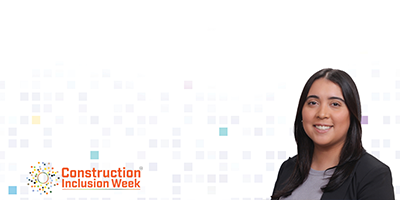
“Schimenti values people as the foundation of our company, and to demonstrate that, the focus on belonging and inclusion is significant. When employees feel a sense of belonging, they are more likely to perform at their best and stay with us longer.”
Elizabeth Valencia
HR Assistant
Day 3: Supplier Diversity
What is supplier diversity and why is it important? Supplier diversity is a business practice that refers to the inclusion of businesses owned by diverse individuals or groups in the procurement of goods and services. A diverse supplier (xBE) is generally defined as a business that’s at least 51% owned and operated by an individual that’s part of a traditionally underrepresented or underserved group. Common classifications are minority-owned business enterprises (MBEs), woman-owned business enterprises (WBEs), and small-business enterprises (SBEs). Businesses owned by other minority groups, such as LGBTQ+, veterans, and persons with disabilities, may also be considered diverse suppliers.
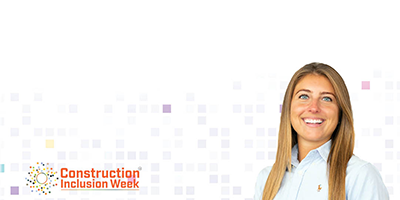
“Engaging with diverse suppliers allows Schimenti to stand out in the market and with clients. By prioritizing supplier diversity, we have the unique ability to find and support great subcontractors, enriching a diverse market. Through this, we provide the necessary backing to grow their business and establish a prominent name within the industry.”
Taylor Sambrook
Estimator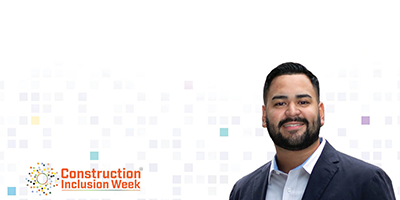
“By working with diverse suppliers and subcontractors, Schimenti helps to support underrepresented businesses, strengthening our industry presence. Through inclusive practices, we open doors to unique opportunities, shaping an ecosystem where all parties thrive and significantly contribute to our projects and the broader business landscape.”
Juan Donneys
Junior Estimator
Day 4: Workplace Culture
Establishing and maintaining a positive workplace culture means that everyone gets to experience a workplace that is inclusive and respectful. We know what a good team environment feels like. We also know that a good culture leads to a safer and more productive job, one that provides higher value to our client and allows each and every worker to perform their best work.
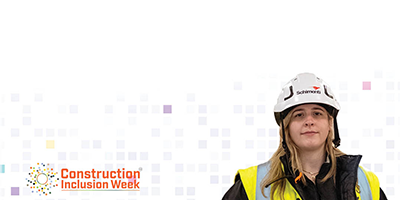
“At Schimenti, we have established a culture of respect, support, and trust that has fostered a strong sense of community. Our team is dedicated to ensuring the safety of all workers both on-site and in our offices by creating a benevolent work environment.”
Anna Campanelli
Health & Safety Compliance Specialist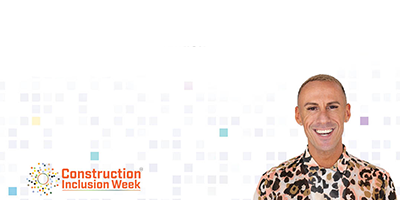
“‘Strength lies in differences, not in similarities,’ Stephen Covey once remarked. Schimenti embodies this by fostering a diverse environment that promotes better discussions and decisions. Even in an industry primarily heterosexual, I’ve never felt out of place at Schimenti as a gay man. The company celebrates our unique qualities and encourages authenticity. I’m proud to be part of such a supportive work environment.”
Adam Caronti
Training & Development Manager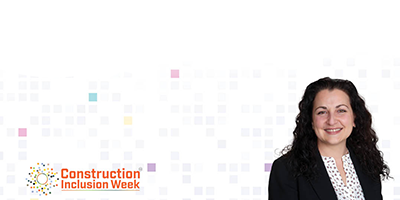
“Creating a positive workplace culture and fostering a robust team environment characterized by mutual respect and self-assurance instills a sense of responsibility and generates motivation. This, in turn, leads to a surge in new ideas, solutions, and productivity. Inclusion grants everyone the opportunity to have a seat at the table.”
Maria Konstantellos
Senior Operations Manager, Field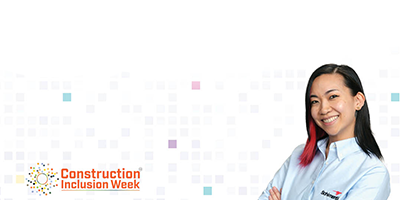
“Diversity is evident throughout Schimenti. Everyone has the opportunity to bring their various backgrounds and experiences together to form the strongest team. When our team members feel respected, valued, and have a place at the table, they feel comfortable to have positive impacts throughout the workplace.”
Kristi Takemoto
Operations Manager
Day 5: Community Engagement
Community engagement, through volunteering and financial donations, is embedded in most companies in our industry. History has shown us we are an enormously generous group of people. As we continue to advance our efforts to create a more diverse and inclusive environment, it is important to step back and look at our community engagement through a DEI lens. Are we supporting diverse communities in meaningful ways? Is there open dialogue between our companies and community leaders? Are we leveraging the resources of our industry to create real social change?
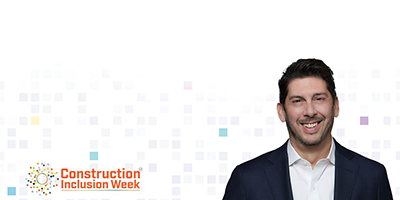
“As a leader in the construction industry, Schimenti understands that construction is a universal language. It is vital to support and strengthen the communities where we operate, promoting diversity and inclusivity and utilizing our resources to construct a better, more interconnected world.”
Vincent Spataro
Director, West Coast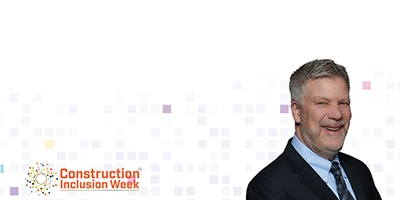
“With the consistent success that Schimenti has achieved, we are incumbent to share our good fortune with those in our community. It’s incredibly gratifying to help others in need, generating a sense of well-being and positivity in your spirit.”
Joseph Sparta
Chief Financial Officer

